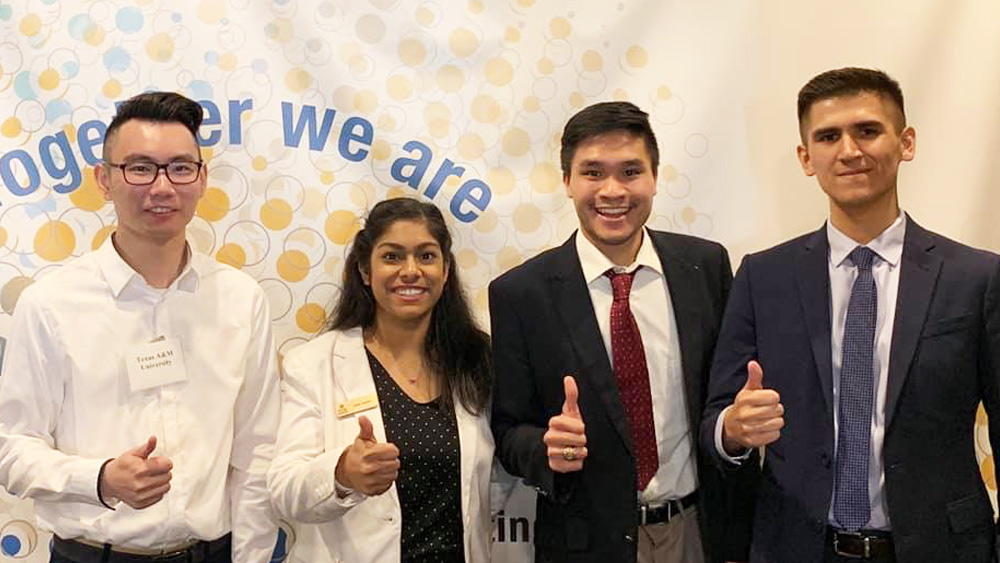
Inspired by her love to make new experiences, and the desire to challenge herself in ways beyond the norm, freshman engineering student Jainita Chauhan and her team competed in the Global Grand Challenges Summit Competition in California in April.
These competitions are possible for anyone and you shouldn't be scared to participate or underestimate your capabilities. Well-rounded teams aren’t composed of the same types of individuals. For a team to be strong, it needs that ambitious freshman or sophomore who isn't scared to step out of their comfort zone to try something new.
The top five teams from this competition, in which students are asked to create business plans and models that tackle grand challenges of the 21st century, gained the opportunity to represent the United States at the international competition held in London. Although Chauhan’s team did not move on to this next competition, the experience itself was enough for the team.
“This entire project was so unexpected for me,” said Chauhan. “I wasn’t even planning on joining the team because I was scared of the fact that I was a freshman and everyone else on the team would be much more competent than myself.”
Fears aside, Chauhan was chosen as team lead, though she regards junior civil engineering student, Justin Nguyen, as her co-lead. As a female and one of the youngest members, Chauhan said that there were many opportunities to break down stereotypes.
“When I've told someone about this project and my role on the team, I can’t say how many times I have gotten raised eyebrows or doubt in my capabilities,” said Chauhan.
It was in these stereotypes that Chauhan found her purpose: to represent Texas A&M Engineering in the best way she could by never giving anything less than her best. However, like anyone, Chauhan said that it took immense support from her friends and family to not give up.
“In my horrible habit of stressing over everything, sometimes it took them trusting in my work ethic and capabilities to keep me going,” said Chauhan.
In her time there and with her teammates, she was able to visit the National Academy of Engineering and receive valuable, in-depth training in business and engineering entrepreneurship. Her team’s project, “The Disaster City Digital Twin System,” was an AggiE_Challenge research project focused on the restoration and improvement of urban infrastructure inspired by flooding disasters in areas like Houston.
Chauhan said that her team’s nonprofit business model gathers crowdsourced data and processes it through artificial intelligence software, where it is then taken to a web-based application map where humanitarian agencies can view data in near real time, solving a communication and coordination problem.
“Though my team didn't advance to the Global Summit in London, I was extremely proud of the accomplishments we achieved this semester and I know that the Digital Twin System is many steps closer to commercialization than it was in January,” said Chauhan.
Overall, Chauhan said that this experience proved invaluable to her in more ways than she could count.
“This project was definitely a highlight of my semester and my freshman year,” she said. “I enjoyed it much more than I was expecting to and I learned a lot.”
In the future she hopes that more students join the team and take their successes even further, specifically freshman and sophomore students.
“These competitions are possible for anyone and you shouldn't be scared to participate or underestimate your capabilities. Well-rounded teams aren’t composed of the same types of individuals. For a team to be strong, it needs that ambitious freshman or sophomore who isn't scared to step out of their comfort zone to try something new,” said Chauhan.
AggiE_Challenge is designed to engage engineering undergraduate students with multidisciplinary team research projects related to engineering challenges facing our society. The grand challenges include the 14 Grand Challenges for Engineering (National Academy of Engineering), the 14 Grand Challenges for Global Health (Bill and Melinda Gates Foundation) and Engineering World Health: Projects That Matter.